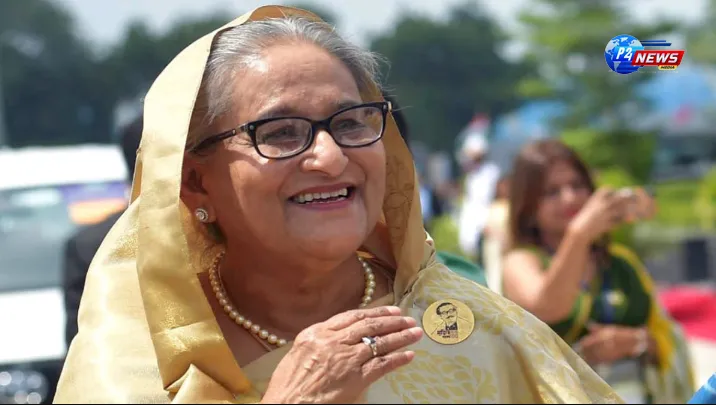Bangladesh's interim government has requested India's extradition of ousted Prime Minister Sheikh Hasina, prompting New Delhi to navigate a complex diplomatic situation amidst regional tensions and political ramifications.
Bangladesh's interim government has requested India's extradition of ousted Prime Minister Sheikh Hasina, prompting New Delhi to navigate a complex diplomatic situation amidst regional tensions and political ramifications.
The interim government of Bangladesh has officially requested the extradition of former Prime Minister Sheikh Hasina from India, presenting a challenge for New Delhi that requires careful diplomatic navigation. This request highlights the complexities of international relations, as it is based on the extradition treaty established in 2013 between the two nations.
According to a spokesperson from the Ministry of External Affairs, a note verbale was received from the Bangladeshi high commission, outlining the extradition appeal. The spokesperson added, “At this time, we have no comment to offer on the matter,” indicating a cautious approach from the Indian side.
A note verbale serves as a formal diplomatic communication, distinct from a traditional letter in terms of formality. It plays a crucial role in international diplomacy, especially in sensitive matters such as extradition.
In Bangladesh, foreign adviser to the interim government, Touhid Hossain, confirmed that the request for Hasina's extradition was formally submitted, referencing the treaty established in December 2013. Hossain remarked, “We sent a note verbale to the Indian Government expressing our desire to secure her return for judicial proceedings.”
Additionally, Lt Gen Jahangir Alam Chowdhury (retd), who serves as the home affairs adviser, noted during a press conference that a prisoner exchange agreement is in place between India and Bangladesh, suggesting that the extradition would be pursued under this framework.
However, India has various provisions within the extradition treaty that could allow it to deny the request. For instance, Section 6 specifically states that extradition may be refused if the charges are of a political nature. Such exclusions apply to serious offenses like murder, terrorism, or kidnapping, indicating a potential avenue for India to navigate this request cautiously.
Another relevant aspect is found in Article 8 of the treaty, which includes stipulations for refusing extradition if accusations lack good faith or pertain to military offenses not recognized in general criminal law. Sources suggest that India might consider the possibility that the charges against Hasina lack genuine intent.
The extradition treaty, first signed in 2013 and later amended in 2016, was designed primarily to tackle issues related to insurgency and terrorism along the bordering areas shared by the two countries. This background underscores the treaty’s objectives beyond individual cases to broader security concerns between the nations.
The interim government of Bangladesh has indicated its intention to investigate Hasina concerning serious allegations, including her alleged involvement in ordering killings and enforced disappearances of critics during the civil unrest that erupted against her administration in mid-2023. Reports indicate that Hasina faces a total of 51 legal cases, with 42 directly pertaining to murder.
Moreover, a commission established by interim Prime Minister Muhammad Yunus has raised serious allegations that India played a role in enforced disappearances executed by security forces during Hasina's lengthy tenure in power.
Since fleeing to India in August on a military aircraft that landed at the Hindon airbase, Hasina's situation has further complicated diplomatic relations between New Delhi and Dhaka. Following her departure, multiple reports have surfaced detailing violence against religious minorities in Bangladesh, raising concerns for the Indian government. Just last week, India reported that approximately 2,200 incidents targeting Hindus and other minority groups had been documented in Bangladesh this year alone.
Like
Dislike
Love
Angry
Sad
Funny
Pray
'Trump Tracker: Tulsi Gabbard's Surprising Appointment as US Intelligence Chief
November 14, 20249th Ayurveda Day in Melbourne: A Celebration of Ayurvedic Innovations and Global Health Impact
November 10, 2024🍪 We Value Your Privacy and Experience Hi there! We use cookies to enhance your browsing experience, provide personalized content, and analyze site traffic. By continuing to use our site, you consent to our use of cookies.







Comments 0